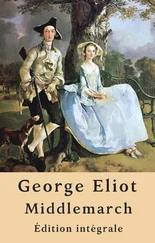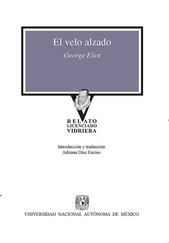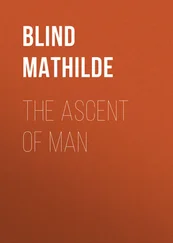Mathilde Blind - George Eliot
Здесь есть возможность читать онлайн «Mathilde Blind - George Eliot» — ознакомительный отрывок электронной книги совершенно бесплатно, а после прочтения отрывка купить полную версию. В некоторых случаях можно слушать аудио, скачать через торрент в формате fb2 и присутствует краткое содержание. ISBN: , Жанр: foreign_antique, foreign_prose, Биографии и Мемуары, на английском языке. Описание произведения, (предисловие) а так же отзывы посетителей доступны на портале библиотеки ЛибКат.
- Название:George Eliot
- Автор:
- Жанр:
- Год:неизвестен
- ISBN:http://www.gutenberg.org/ebooks/36847
- Рейтинг книги:3 / 5. Голосов: 1
-
Избранное:Добавить в избранное
- Отзывы:
-
Ваша оценка:
- 60
- 1
- 2
- 3
- 4
- 5
George Eliot: краткое содержание, описание и аннотация
Предлагаем к чтению аннотацию, описание, краткое содержание или предисловие (зависит от того, что написал сам автор книги «George Eliot»). Если вы не нашли необходимую информацию о книге — напишите в комментариях, мы постараемся отыскать её.
George Eliot — читать онлайн ознакомительный отрывок
Ниже представлен текст книги, разбитый по страницам. Система сохранения места последней прочитанной страницы, позволяет с удобством читать онлайн бесплатно книгу «George Eliot», без необходимости каждый раз заново искать на чём Вы остановились. Поставьте закладку, и сможете в любой момент перейти на страницу, на которой закончили чтение.
Интервал:
Закладка:
George Eliot
PREFATORY NOTE
Detailed accounts of George Eliot's life have hitherto been singularly scanty. In the dearth of published materials a considerable portion of the information contained in this biographical study has, necessarily, been derived from private sources. In visiting the places connected with George Eliot's early life, I enjoyed the privilege of meeting her brother, Mr. Isaac Evans, and was also fortunate in gleaning many a characteristic fact and trait from old people in the neighbourhood, contemporaries of her father, Mr. Robert Evans. For valuable help in forming an idea of the growth of George Eliot's mind, my warm thanks are especially due to her oldest friends, Mr. and Mrs. Charles Bray, and Miss Hennell of Coventry. Miss Jenkins, the novelist's schoolfellow, and Mrs. John Cash, also generously afforded me every assistance in their power.
A great part of the correspondence in the present volume has not hitherto appeared in print, and has been kindly placed at my disposal by Mrs. Bray, Mrs. Gilchrist, Mrs. Clifford, Miss Marks, Mr. William M. Rossetti, and the late James Thomson. I have also quoted from letters addressed to Miss Phelps which were published in Harper's Magazine of March 1882, and from one or two other articles that have appeared in periodical publications. For permission to make use of this correspondence my thanks are due to Mr. C. L. Lewes.
By far the most exhaustive published account of George Eliot's life and writings, and the one of which I have most freely availed myself, is Mr. Call's admirable essay in the Westminster Review of July 1881. Although this, as indeed every other article on the subject, states George Eliot's birthplace incorrectly, it contains many important data not mentioned elsewhere. To the article on George Eliot in Blackwood's Magazine for February 1881, I owe many interesting particulars, chiefly connected with the beginning of George Eliot's literary career. Amongst other papers consulted may be mentioned a noticeable one by Miss Simcox in the Contemporary Review , and an appreciative notice by Mr. Frederick Myers in Scribner's Magazine , as well as articles in Harper's Magazine of May 1881, and The Century of August 1882. Two quaint little pamphlets, 'Seth Bede: the Methody,' and 'George Eliot in Derbyshire,' by Guy Roslyn, although full of inaccuracies, have also furnished some curious items of information.
Mathilde Blind.CHAPTER I.
INTRODUCTORY
Speaking of the contributions made to literature by her own sex, George Eliot, in a charming essay written in 1854, awards the palm of intellectual pre-eminence to the women of France. "They alone," says the great English author, "have had a vital influence on the development of literature. For in France alone the mind of woman has passed, like an electric current, through the language, making crisp and definite what is elsewhere heavy and blurred; in France alone, if the writings of women were swept away, a serious gap would be made in the national history."
The reason assigned by George Eliot for this literary superiority of Frenchwomen consists in their having had the courage of their sex. They thought and felt as women, and when they wrote, their books became the fullest expression of their womanhood. And by being true to themselves, by only seeking inspiration from their own life-experience, instead of servilely copying that of men, their letters and memoirs, their novels and pictures have a distinct, nay unique, value, for the student of art and literature. Englishwomen, on the other hand, have not followed the spontaneous impulses of nature. They have not allowed free play to the peculiarly feminine element, preferring to mould their intellectual products on the masculine pattern. For that reason, says George Eliot, their writings are "usually an absurd exaggeration of the masculine style, like the swaggering gait of a bad actress in male attire."
This novel theory, concerning a specifically feminine manifestation of the intellect, is doubly curious when one compares it with Madame de Staël's famous saying, " Le génie n'a pas de sexe. " But an aphorism, however brilliant, usually contains only one half the truth, and there is every reason to think that women have already, and will much more largely, by-and-by, infuse into their works certain intellectual and emotional qualities which are essentially their own. Shall we, however, admit George Eliot's conclusion that Frenchwomen alone have hitherto shown any of this original bias? Several causes are mentioned by her in explanation of this exceptional merit. Among these causes there is one which would probably occur to every one who began to reflect on this subject. The influence of the "Salon" in developing and stimulating the finest feminine talents has long been recognised. In this school for women the gift of expression was carried to the utmost pitch of perfection. By their active co-operation in the discussion of the most vital subjects, thought became clear, luminous, and forcible; sentiment gained indescribable graces of refinement; and wit, with its brightest scintillations, lit up the sombre background of life.
But among other causes enumerated as accounting for that more spontaneous productivity of Frenchwomen, attributed to them by George Eliot, there is one which would probably have occurred to no other mind than hers, and which is too characteristic of her early scientific tendencies to be omitted. For according to her, the present superiority of Frenchwomen is mainly due to certain physiological peculiarities of the Gallic race. Namely, to the "small brain and vivacious temperament which permit the fragile system of woman to sustain the superlative activity requisite for intellectual creativeness," whereas "the larger brain and slower temperament of the English and Germans are in the womanly organisation generally dreamy and passive. So that the physique of a woman may suffice as the substratum for a superior Gallic mind, but is too thin a soil for a superior Teutonic one."
So knotty and subtle a problem must be left to the scientist of the future to decide. Perhaps some promising young physiologist, profiting by the "George Henry Lewes Studentship" founded by George Eliot, may some day satisfactorily elucidate this question. In the meanwhile it is at least gratifying to reflect that she does not deny the future possibilities of even English and German women. She admits that conditions might arise which in their case also would be favourable to the highest creative effort; conditions which would modify the existing state of things according to which, to speak in her own scientific phraseology: "The woman of large capacity can seldom rise beyond the absorption of ideas; her physical conditions refuse to support the energy required for spontaneous activity; the voltaic pile is not strong enough to produce crystallisations."
But was the author of 'Adam Bede' not herself destined to be a triumphant refutation of her theory? Or had those more favourable circumstances mentioned as vague possibilities already arisen in her case? Not that we believe, for that matter, in the superior claims of illustrious Frenchwomen. It is true George Eliot enumerates a formidable list of names. But on the whole we may boast of feminine celebrities that need not shrink from the comparison.
There is, of course, much truth in the great Englishwoman's generous praise of her French compeers. "Mme. de Sévigné remains," she says, "the single instance of a woman who is supreme in a class of literature which has engaged the ambition of men; Mme. Dacier still reigns the queen of blue-stockings, though women have long studied Greek without shame; Mme. de Staël's name still rises to the lips when we are asked to mention a woman of great intellectual power; Mme. Roland is still the unrivalled type of the sagacious and sternly heroic yet lovable woman; George Sand is the unapproached artist who, to Jean Jacques' eloquence and deep sense of external nature, unites the clear delineation of character and the tragic depth of passion."
Читать дальшеИнтервал:
Закладка:
Похожие книги на «George Eliot»
Представляем Вашему вниманию похожие книги на «George Eliot» списком для выбора. Мы отобрали схожую по названию и смыслу литературу в надежде предоставить читателям больше вариантов отыскать новые, интересные, ещё непрочитанные произведения.
Обсуждение, отзывы о книге «George Eliot» и просто собственные мнения читателей. Оставьте ваши комментарии, напишите, что Вы думаете о произведении, его смысле или главных героях. Укажите что конкретно понравилось, а что нет, и почему Вы так считаете.












